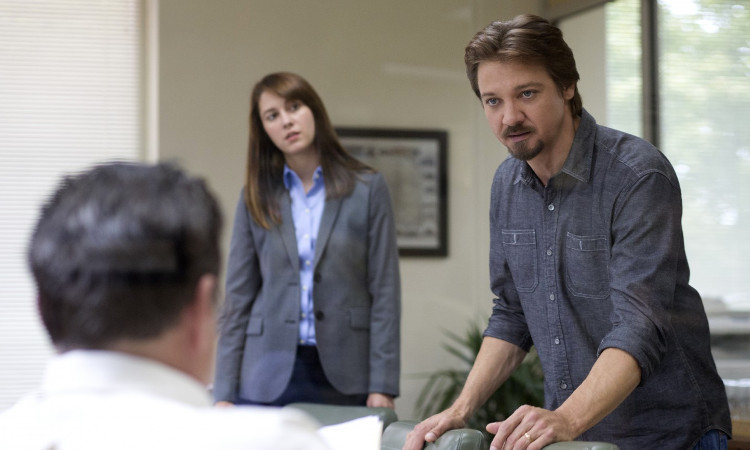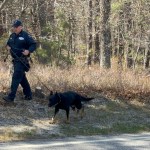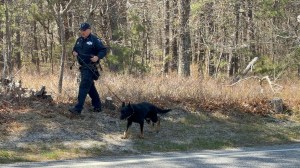Before I read the reviews or heard from my peers, I knew I had to see the new political thriller, “Kill the Messenger,” starring Jeremy Renner as the tragic investigative reporter Gary Webb, who uncovered a connection between Nicaragua’s Contras, crack cocaine and the CIA. As an ink-stained wretch myself, I also knew it was my duty to see this quasi-indie film in a movie theatre, an obsolescent venue fated to disappear just like newsprint.
Now I want everybody to see this requiem for my profession, this homage to the orneriest heroes of the Fourth Estate who fight for the truth against all odds. And I want Renner, who’s been an Oscar nominee twice—for the lead role in “The Hurt Locker” and for his supporting role in “The Town”—to get the Hollywood statuette he deserves. You gotta love him.
As David Denby wrote in The New Yorker, “Renner’s Gary Webb is an ebullient creation… He makes Webb a hot-tempered, explosive, slam-bang guy, bright, impatient, explosive and wounding.”
I was deeply affected by his portrayal of a journalist driven to the brink of despair, whose marriage collapses when his wife loses faith in him after his editors and publisher have buckled under and undercut him. I know how disruptive it can be to your home life when a story gets a hold of you and won’t let go. And I’ve seen the arrogance of editors clashing with the ambition of reporters, and the incessant conflict between gatekeepers and gatecrashers. It takes courage to speak truth to power. Usually mediocrity and banality win out. It’s: “How did we let that get in the paper?” Not: “Let’s go with what we’ve got.”
In Webb’s case, he went up against the weight of the CIA, the violence of drug smugglers and the collusion of America’s top three dailies. Writing a three-part series for the San Jose Mercury News in 1996 called “Dark Alliance,” he chronicled how the Contras trafficked in cocaine to fund their fight against the Sandinistas in the 1980s while the agency looked the other way, even if the coke ended up in the hands of “Freeway” Ricky Ross, a notorious crack dealer in South Central L.A.
The Los Angeles Times had called Ross the “one outlaw capitalist most responsible for flooding Los Angeles’ streets with mass-marketed cocaine.” But when Webb’s series came out in San Jose, California’s top paper assigned 17 reporters and published 20,000 words to rebut it. The Los Angeles Times was joined by The Washington Post in debunking his reporting while The New York Times raked over his entire career to portray him as a reporter reckless with the facts. Getting scooped by a second tier media outlet had really gotten them hot under the collar, and the top brass suspended their skepticism when their sources at the CIA told them what they were only too willing to hear.
Screenwriter Peter Landesman based the movie on Webb’s own 1999 book, “Dark Alliance,” which has just been reissued, and Nick Schou’s “Kill the Messenger: How the CIA’s Crack-Cocaine Controversy Destroyed Journalist Gary Webb,” which came out in 2006, two years after Webb’s suicide.
It was directed by Michael Cuesta, a Long Island native, whose resumé includes many episodes of Showtimes’ “Homeland,” and it was filmed by Sean Bobbitt, the cinematographer for “12 Years a Slave.” Add those credits to the roster of top-notch actors who did their own star turns in this movie—Michael Sheen, Andy Garcia, Ray Liotta, Mary Elizabeth Winstead, Rosemarie DeWitt, Paz Vega, and Oliver Platt—and it’s not hard to understand why it deserves to be widely seen.
I find myself feeling so proprietary about this movie that I can barely tolerate any criticism of it, even though I know that it is far from perfect, because I immediately think the critic is doing the same thing the big three papers did once before: destroy the reputation of a good American journalist by pointing out his character flaws. Fortunately, I have company.
Calling it “the best newspaper movie since ‘All the President’s Men,’” the Daily News’ Denis Hamill pulled no punches about “how a few of the elite weasels of my own business conspired with CIA smear merchants to destroy a terrific reporter’s life… They deconstructed and attacked his reporting. They dug into his past sex life. They destroyed his marriage and wrecked his career, and he wound up dead with two bullets in his head, which authorities ruled a suicide.”
In his review, Denby concluded with a sentence that one of my former colleagues dubbed the best last line of the year:
“Even his skeptics would have to admit that he must have been a very strong-willed man to shoot himself in the head twice.”
Schou’s book depicts the downward spiral that Webb, who’d been fighting depression all his adult life, took until he reached his own demise. Schou, who’s been an investigative reporter at OC Weekly in California, doesn’t believe anyone else but Webb fired those two shots. He makes a compelling argument in his epilogue.
“There wasn’t any assassin’s bullet, nor was there any need for one,” Schou writes. “It was Gary Webb’s controversial, career-ending story—and the combined resources and dedication of America’s three largest and most powerful newspapers—that killed his career as a reporter and set the stage for his personal self-destruction. Without exception, those who knew Webb well believe he killed himself.”
The introduction to Schou’s book was written by Charles Bowden, an author and acclaimed journalist based in New Mexico whose “most notable work,” The New York Times said in his obituary last month when he died at the age of 69, “cut through debates about drug wars and immigration” on the Rio Grande border. Bowden met Webb when he was deep into his book about the drug trade. “He was the best investigative reporter I’ve ever known. But that hardly matters if you mess with our government’s secret world without its consent,” Bowden wrote.
And now when our republic is reeling from fear fanned by the irresponsible for political gain, and from the lingering recession prolonged by those who profit from inequality, our citizens could use a lot more courageous reporters like Gary Webb to cut through the bullshit and shine light on the darkness. And it’s a national tragedy that even our greatest newspapers are a shadow of their former selves as they too struggle against austerity to do the toughest job our democracy demands.



























